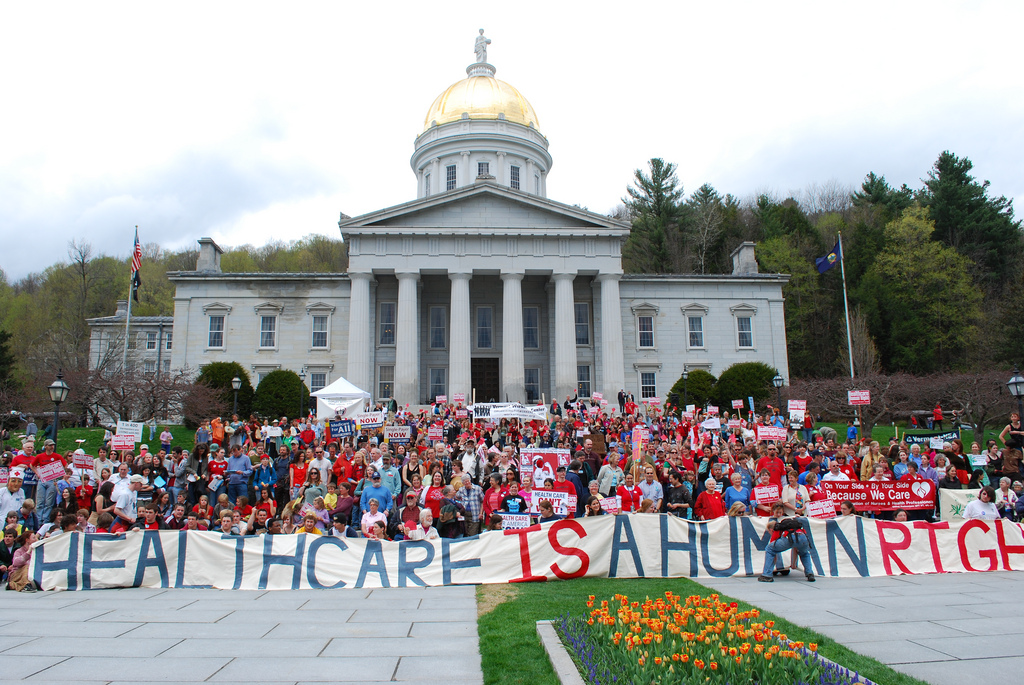As a college student, you might not be particularly interested in politics. You might not see its relevance to your life or to the lives of anyone you know. You might steer clear from cable news, Facebook shares, and Twitter brawls at all costs. However, even if all of these things are true, it’s likely that you’ve heard of the Affordable Care Act (ACA)—better known by its nickname, Obamacare—many times over the past six or eight years.
This 2010 law was the culmination of the Obama administration’s efforts to improve the American healthcare system. The ACA has never been perfect, but it did establish a number of policies that directly resulted in the health insurance coverage of at least 20 million previously uninsured Americans. Despite this massive step towards universal coverage, the Republican Party has consistently voiced vitriolic opposition to the law since before its passage. Now that the GOP has taken control of both the White House and Congress, the ACA is likely to be repealed, and millions of Americans are likely to lose affordable access to health care—even if a Republican replacement plan is ever passed. I’m willing to bet that you’ve heard something about the law’s potential repeal over the last couple weeks, and I’m also willing to bet that you’re going to hear much more in the coming weeks and months.
Because debates about the ACA (and health care in general) are inescapable in everyday American life, intricate, and incredibly important, we have the responsibility to engage with these topics as students and future leaders. Those of us who have avoided politically-charged issues need to start watching our current leaders—and the decisions that they make—more closely. Others already care about the actions of our government and representatives, but even if you fit into this category, you might not yet be fluent in the language and ideas of health policy. My purpose for this column throughout the semester is to expose both groups of readers to health-related issues that currently face our nation and world and then consider how our government and civil society should act in response.
These explorations will be made with a simple but vital belief in mind—namely, that health is a fundamental human right. This concept represents the most important reason why all of us should begin to reckon with health policy. When we realize that the right to health is one that our government does not currently protect (and that it will only be further violated during the next four to eight years), we also see that it is a necessary idea to support.
But first, we need to more explicitly define “health” in the context of “the right to health.” Without access to doctors, nurses, medications, and hospitals, good health is constantly at risk. We must therefore consider health and access to health care to be synonymous. Additionally, in the case of the current American healthcare system, we must recognize that access to care is basically unavailable without health insurance. The costs of out-of-pocket care in this country have become exorbitant, which either prohibit the uninsured from seeking care when they need it or bankrupt them if they finally get it. To summarize, if we decide that health is a fundamental human right and that our government must protect the health of all Americans, we essentially say that our government has the responsibility to ensure that all Americans have some sort of health insurance.
Does our country currently operate at these standards? In a word, no. The United States is one of the few industrialized countries that does not guarantee access to health care; our government doesn’t act as if everyone deserves the right to health. Even with the Affordable Care Act, almost 30 million Americans are still uninsured. Without it, that number would rise to 50 million. This fact must be disturbing on a visceral level if it is new to you. It becomes even more disturbing when you learn that the most common reason that Americans live without health insurance is its cost—in other words, good health and long life expectancy are more or less available to our citizens on the basis of wealth. The concept becomes positively revolting when you consider how unjustly wealth is distributed in this country. I’m referring to the level of income inequality that leaves so many Americans fighting to survive while allowing a few Americans to lounge in total opulence. I’m referring to the fact that these distinctions are not based solely on things like good work ethic or purity of values; it’s not as if the invisible hand has perfectly placed our “best” citizens in the highest socioeconomic classes and our “worst” citizens in the lowest. I’m referring to the historic and present-day discrimination that makes race and ethnicity so predictive of socioeconomic standing. I’m referring to the unlikelihood of social mobility in the 21st century and the self-fulfilling prophecy of the situation that you’re born into. None of these realities have any basis in justice, but they are firmly entrenched. Furthermore, they dictate health, so we need to confront them.
When we do, we uncover the problem that lies beneath our collective lack of interest in the right to health: Those who benefit from the status quo accept the status quo. Many more of us have access to health care than those who don’t, and it is easy and convenient to forget the millions who are left out. But we tear at the moral fiber of our nation when we insist (or vote) that change is unnecessary. By doing so, we declare that some citizens’ fundamental rights are unimportant and do not deserve to be protected. Even if these declarations are fueled by the prioritization of other principles, they still prop up an unjust status quo. For example, if we decide that treating health care like any other free-market product is more important than actually providing health care to those who need it, we encroach on the fundamental human rights of our neighbors. Or if we turn our backs on the principles of the Affordable Care Act, we comply with Paul Ryan’s greatest ambition: taking away health insurance subsidies from the working poor in order to cut taxes for the ultra-wealthy.
On the other hand, protecting the ACA and advocating for the expansion of its benefits to lower- and middle-class citizens would work to fight unequal access to health care. These efforts would continue to address a larger problem at play—that is, the cycle of sickness feeding poverty and poverty feeding sickness. In other words, equity of access to health care could help to break down inequity in general. When we see the right to health as fundamental, our focus shifts towards protecting the human rights of our most vulnerable, improving their situations, and actually building “a more perfect Union.”
So my column, as it examines current debates, will operate under the assumption that we must continually challenge the status quo. In particular, my perspective will be rooted in the belief that the right to health is not currently protected but that it must be. In this moment—at the dawn of a four-to-eight-year era in which the health of millions of Americans will be threatened—that belief is crucial for all of us.



